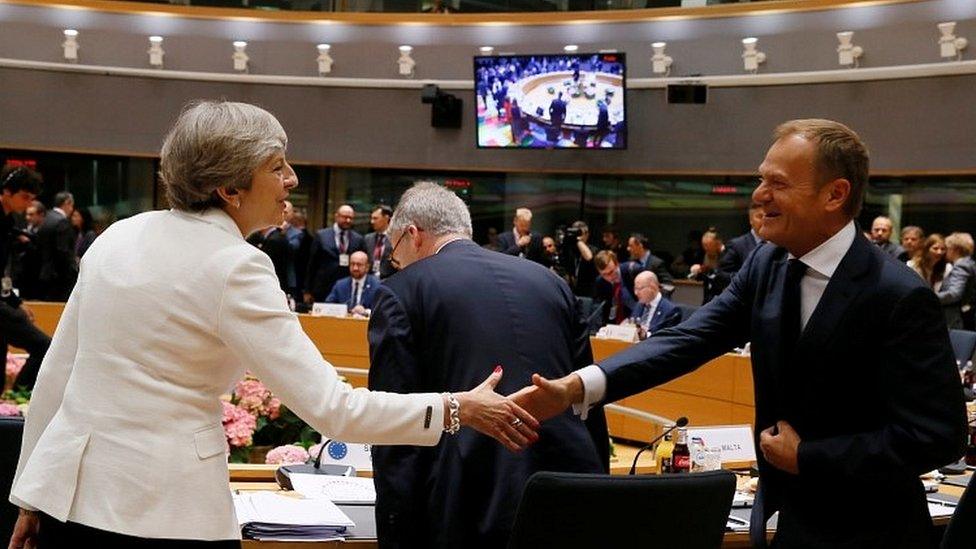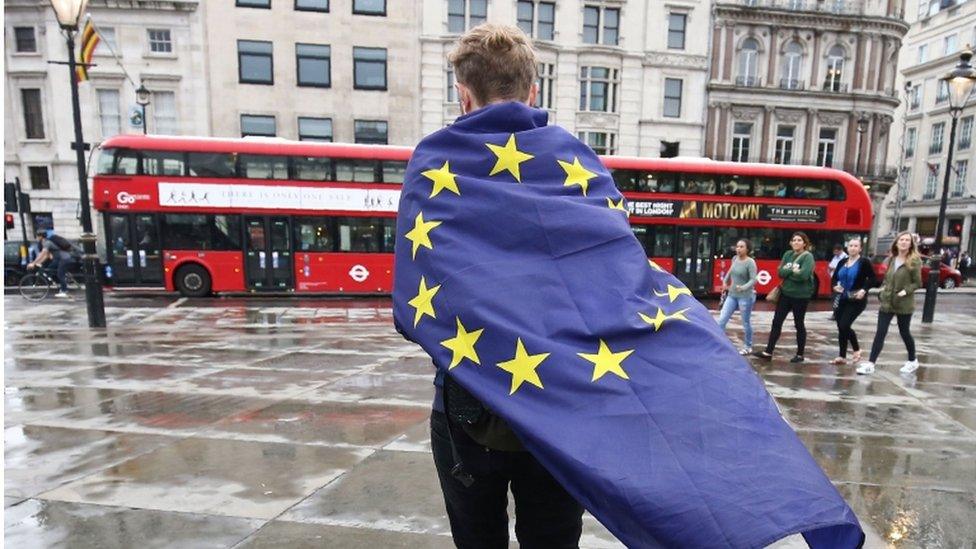Ideas on the table for citizens' rights
- Published

Hostility at home, barely warmer in Brussels.
There was relief that the UK is at last putting its ideas on the table but concerns over the British plans for EU citizens reflect Theresa May's fundamental bind. She faces a united opposing front here in Brussels, at least for now.
There are clashing expectations from the public at home - who want different things from departure. And of course varying strands of thought and demands from inside her own party.
Even a leader at the peak of their powers would struggle to deal with all that.
While complex, this summit was perhaps a brief respite from the brooding turmoil in her own party, where questions about the viability of her leadership lurk. Governing is doing, not fending off enemies - and at least today, Theresa May has done that.
There was also a big hint about how the British negotiators hope to get round one of the big obstacles. As we've discussed before one of the big gaps between the two negotiating sides here are who will police the rules on citizen's rights. So, if something goes wrong, who can they appeal to, how will their rights be protected.
The EU side is adamant that it can only be the European Court of Justice. Theresa May has been totally insistent that it can't be them.
At the press conference this afternoon she repeated that it would be the British courts in charge. So far, so the same. But she then tantalisingly - if you are a nerd like me - said that because the rights would be agreed as part of the withdrawal treaty, they would be therefore subject to international law.
Therefore, theoretically, that means they could be enforced by an international court of some variety. Lawyers suggest that is not likely to be the Hague, but could be some kind of new organisation that had British and European lawyers involved.
Sources in government have suggested it is a course the UK is likely to pursue, even though it has not been the subject of extensive discussions yet between the two sides. It could be, hypothetically, an elegant solution to avoid the clash, if the EU is amenable.
Sources on the UK side also suggest that it's unreasonable of the EU to expect EU judges to continue to rule on British citizens abroad, as well as expecting EU judges to continue to rule on EU citizens in Britain.
If the arrangement is truly to be reciprocal, they argue, then wouldn't it be more fair for British judges to rule on British expats abroad, and vice versa. There are many long, tangled arguments ahead, but at least, in the last forty eight hours, ideas are now being discussed.
- Published23 June 2017

- Published27 June 2017
